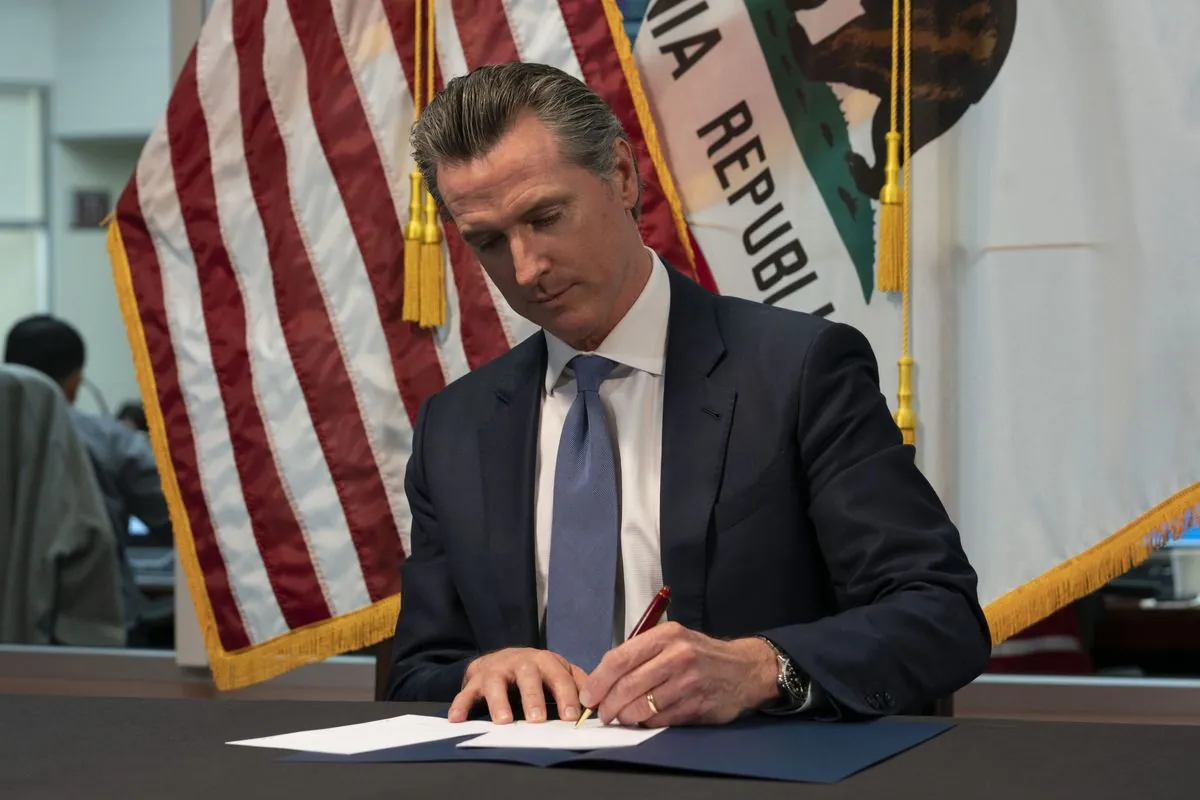California has taken a significant step in regulating artificial intelligence (AI) use in political advertising. On 2024-09-17, Governor Gavin Newsom signed three bills aimed at curbing the spread of deepfakes and protecting the integrity of elections.
The new legislation makes it illegal to create and distribute deepfakes related to elections within 120 days before and 60 days after Election Day. This law takes effect immediately, addressing concerns about AI-generated disinformation as the general election approaches in less than 50 days.
Deepfakes, which first appeared in 2017, are synthetic media created using AI to manipulate or generate visual and audio content. The term combines "deep learning" and "fake," reflecting the advanced technology behind these creations. While deepfakes have legitimate uses in film production and virtual reality, their potential to influence elections has been a growing concern since 2016.
One of the bills requires large social media platforms to remove deceptive AI-generated content, making California the first state to implement such a measure. Another bill mandates political campaigns to disclose the use of AI-altered materials in their advertisements.
Newsom emphasized the importance of these measures:
"Safeguarding the integrity of elections is essential to democracy, and it's critical that we ensure AI is not deployed to undermine the public's trust through disinformation -– especially in today's fraught political climate."
California's proactive approach to AI regulation is not new. In 2019, it became the first state to ban manipulated videos and pictures related to elections. This leadership has inspired lawmakers across the country to address the challenges posed by AI in politics.
The urgency of these laws is underscored by the rapid advancement of AI technology. Deepfakes can be created using various AI techniques, including generative adversarial networks (GANs), and their detection remains an ongoing challenge for researchers and tech companies.
As AI continues to evolve, its impact extends beyond elections. Newsom has expressed interest in deploying generative AI tools to address issues such as highway congestion and tax guidance. However, the state is also considering new rules against AI discrimination in hiring practices, highlighting the need for a balanced approach to AI adoption and regulation.
The federal government is also taking steps to address AI-generated content in elections. On the same day as California's bill signings, members of Congress introduced legislation to empower the Federal Election Commission to regulate AI use in elections. This follows the FEC's decision in February 2024 to outlaw AI-generated robocalls aimed at discouraging voters.
As the debate on the ethical implications of deepfake technology continues in academic and policy circles, California's new laws represent a significant effort to protect the democratic process from potential AI-driven manipulation. With the 2024 election on the horizon, these measures aim to ensure that voters can trust the information they receive and make informed decisions at the ballot box.
